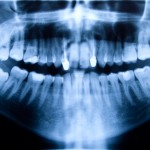
Third molar is one of the most commonly performed surgical procedures and postoperative complications of surgical site infection and alveolar osteitis are not uncommon. The use of antibiotics to reduce these complications is controversial and number of reviews of the topic have been conducted.
The aim of this review was to evaluate whether a single preoperative dose of antibiotic would reduce the incidence and severity of post-operative complications, such as surgical site infection (SSI) and/or alveolar osteitis
Methods
Searches were conducted in the Medline, Embase and Cochrane Library databases.
Randomised controlled trials (RCTs) evaluating the effect of any prophylactic antibiotics administered 20 to 120 minutes preoperatively versus no antibiotics/ placebo on the incidence of infection after surgical removal of partially or totally impacted lower third molars up to 1 week after surgery, were considered.
Three reviewers independently selected studies and abstracted data. Rick of bias was assess using 4 criteria allocation concealment, blinding of assessors and patients, withdrawal, and calculation of the overall risk of bias . Odds ratios were calculated and meta-analysis performed to determine the effect of all antibiotics on the incidence of SSI or alveolar osteitis. Subgroup analysis was performed for different antibiotics.
Results
- 10 RCTs involving a total of 1390 patients were included
- 4 studies were considered to be at high risk of bias, 6 at low risk.
- 4 used amoxicillin, 2 metronidazole, 1 amoxicillin & metronidazole, 2 penicillin V.
- SSI or alveolar osteitis occurred in 26 of 690 patients receiving a preoperative antibiotic (3.7%) and in 79 of 700 patients receiving a placebo or no treatment (11.3%).
- Meta-analysis showed
- use of antibiotics significantly reduced the number of SSIs or alveolar osteitis (OR = 0.30; 95% CI, 0.19 to 0.47; P≤.00001)
- use of any antibiotics significantly reduced the number of SSIs (OR = 0.19; 95% CI, 0.08 to 0.45; P = .0002).
- use of amoxicillin significantly reduced the number of SSIs (OR = 0.22; 95% CI, 0.08 to 0.59; P = .002).
- use of pre- operative antibiotics significantly reduced the incidence of alveolar osteitis (OR = 0.35; 95% CI, 0.13 to 0.96; P = .04).
Conclusions
The authors concluded
A single oral dose of 2 g of amoxicillin before lower third molar osteotomy surgical extraction significantly decreased the incidence of SSI. A single dose of 0.8 g of penicillin V before lower third molar osteotomy surgical extraction significantly decreased the incidence of alveolar osteitis.
Comments
The 2012 Cochrane review by Lodi et al (Dental Elf -15th Nov 2012) included 18 RCTs estimated that prevent 1 infection between 10 and 17 people will require antibiotics, and to prevent a case of dry socket between 24 and 250 people would need to receive antibiotics and considered that this benefit was not enough to recommend routine use.
Of the 10 studies included in this new review only 1 was not published at the time the Cochrane review was last updated, 3 of the trials included by this review had been excluded from the Cochrane review leaving 6 common to both reviews. While this new review was restricted to pre-operative antibiotic administration the Cochrane review included antibiotic administration alter tooth extraction.
Links
Primary paper
Marcussen KB, Laulund AS, Jørgensen HL, Pinholt EM. A Systematic Review on Effect of Single-Dose Preoperative Antibiotics at Surgical Osteotomy Extraction of Lower Third Molars. J Oral Maxillofac Surg. 2015 Nov 23. pii: S0278-2391(15)01554-2. doi: 10.1016/j.joms.2015.11.017. [Epub ahead of print] PubMed PMID: 26706491.
Other references

In third molar extractions single dose of preoperative antibiotic reduced infection https://t.co/zZ1hXSuA5t
Odds of alveolar osteitis after third molar extraction reduced with preoperative antibiotic https://t.co/zZ1hXSMbu3
Preoperative antibiotic reduced odds infections following third molar removal
https://t.co/zZ1hXSMbu3
Single dose of preoperative antibiotic reduced infection following third molar removal https://t.co/zZ1hXSMbu3
Don’t miss- Third molars: single dose of preoperative antibiotic reduced infection https://t.co/zZ1hXSMbu3